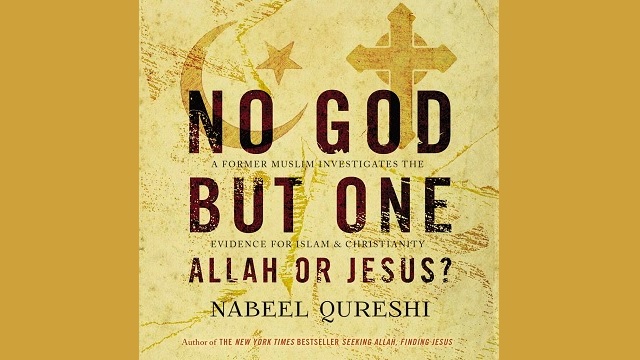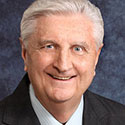Is Allah a real God?—A Historical and Biblical Analysis
By Dr. Rich Swier

W.O Williams did a review of the New York Times best selling author Nabeel Qureshi’s No God but One: Allah or Jesus? in his book Tawhid or Trinity: Is Allah a Real God?
According to BookBeat,
Nabeel Qureshi [in No God but One: Allah or Jesus?] takes readers on a global, historical, yet deeply personal journey to the heart of the world’s two largest religions. He explores the claims that each faith makes upon believers’ intellects and lives, critically examining the evidence in support of their distinctive beliefs. Fleshed out with stories from the annals of both religions, No God but One unveils the fundamental, enduring conflict between Islam and Christianity—directly addressing controversial topics like Jihad, the Crusades, Sharia, the Trinity, and more.
W.O. Williams in the introduction to Tawhid or Trinity: Is Allah a Real God? wrote,
Qureshi was a very unusual, very talented man. An ardent Christian apologist, he traveled widely, speaking on behalf of Ravi Zacharias International Ministries. He attended Eastern Virginia Medical School where he earned and MD, had an MA in Christian apologetics from Biola University, an MA in religion from Duke University, and a Master in Philosophy in Judaism and Christianity from Oxford University.
He was challenged in 2001, by David Wood, a college Christian friend, to study Christianity and compare it with Islam…This inspired Qureshi to launch a years-long research effort to find the truth. Four years later, despite all efforts to resist it, he converted to Christianity.
W.O. Williams’ book presents 11 key questions answered by Nabeel Qureshi in No God but One: Allah or Jesus?:
- False presumptions about the Crusades. Qureshi states, “The narrative of an offensive crusade against peaceful Muslims, along with the overtones of Ridley Scott’s The Kingdom of Heaven and John Esposito’s ‘five centuries of peaceful coexistence, ‘turn out to be fanciful slants based on motivations other than history. The reality is that the Crusades were launched in defense of the Byzantine Empire after two-thirds of the Christian world had been by centuries of Muslim attacks, Muslims understood this and held no grudge against crusaders until modern times, when postcolonial narratives came into vogue.
- Grace vs Works. Islam preaches that Muslims must follow Sharia, Islamic law, to find salvation. Christians, on the other hand, are found acceptable to God and are saved for eternity only by grace through faith in Jesus Christ, (Ephesians 2:8,9). Qureshi found that the Christian way addresses our universal spiritual need. Sharia law does not.
- Allah vs the Trinity. Qureshi presents a sophisticated argument defending the triune nature of God. Muslims challenge the idea, asking if the Christian God is one person, how can He at the same time be three? Qureshi responds that person is distinct from being. A being is what we are. A person defines who we are.
- Is the Quran Eternal or Created? Qureshi asks how can the Quran be eternal if it includes events from Mohammad’s life, for example the Battle of Badar, and was only written in Arabic. He points out that Quran, Sura 43.3 states “verily We have made it an Arabic Qur’an that you may understand.” This suggests the Quran was only created for Arabs.
- Allah Depends on His Creation to Be Allah. [T]he most important concept in Islam is the tawhid, the oneness of Allah. In reciting the shahada, this oneness of Allah is affirmed. Allah is monad, i.e. a complete, self-contained unit that needs nothing outside of itself. As such Allah remains aloof from man, and we only learn of him through his messenger, Muhammad.
- Do Muslims and Christians Worship the Same God? Christians worship Yahweh, the Trinity, and one God in three persons…Muslims worship Allah – a monad who is not relational and neither a father or son.
- The Quran Denies Jesus’ Resurrection and Godhead. He [Qureshi] believed that the veracity of each religion’s claims could be confirmed through study of history. Was Jesus God? Did He die, and was He resurrected? Despite his strong belief in Islam and the Quran, his four-year study forced him to reassess his beliefs, and he was ultimately led to “reluctantly embracing the gospel.” He said, “The evidence in favor of Christianity was so strong I had no choice.”
- Was Mohammad Foretold in the Bible? A common claim heard from Muslims is that Muhammad was prophesied in both the Old and New Testaments. Qureshi writes that as a Muslim he did whatever he could to read Mohammad into the text by ignoring the counter evidence that simply did not allow it.
- Were There Scientific Insights in the Quran? Qureshi relates that in fact, much to his dismay, he found that Aristotle had published a scientific treatise 1,000 years before Mohammad’s time that discussed the stages of embryonic development in great detail. Five hundred years after Aristotle another Greek scientist, Galen, describe the same process, again in much more detail that the Quran.
- Is Muhammad Really a Prophet? The review of his [Mohammad’s] character leads Qureshi to the following conclusion: “Though other Muslims and I often said that Muhammad ought to be followed because of his excellent character, I could not sustain that argument in the face of counterevidence. Although Muhammad gave plenty of moral teaching and exhibited merciful and peaceful character at times, there are many other accounts of Muhammad’s brutality and exultation in war, his spiritual shortcomings, and his troubling treatment of women, among other concerns.”
- Is the Quran the Word of God? Muslims claim the Quran has to be read in Arabic to understand its beauty, but Qureshi asks why would Allah want a book only accessible to those who spoke Arabic? Qureshi argues further that it really does not matter if the book contains beautiful language. It does not mean it was inspired by God. He notes that Stradivarius built the most perfect-sounding violins, but those instruments were not divinely made.
W.O. Williams concludes with these insights,
Nabeel Qureshi sought throughout this study to be unbiased, even to the point of giving Islam the benefit of the doubt in certain circumstances. He said, “Even though my heart’s deepest desire was to defend Islamic faith and remain Muslim, the truth became unavoidable: There was no argument I could use to defend Muhammad’s prophetic status, and there was no compelling reason to believe the Quran was from God.”
We highly recommend reading W.O. Williams’ Tawhid or Trinity: Is Allah a Real God?
The truth will set you free.
©Dr. Rich Swier. All rights reserved.

This article is courtesy of DrRichSwier.com, an online community of citizen journalists, academics, subject matter experts, and activists to express the principles of limited government and personal liberty to the public, to policy makers, and to political activists. Please visit DrRichSwier.com for more great content.

